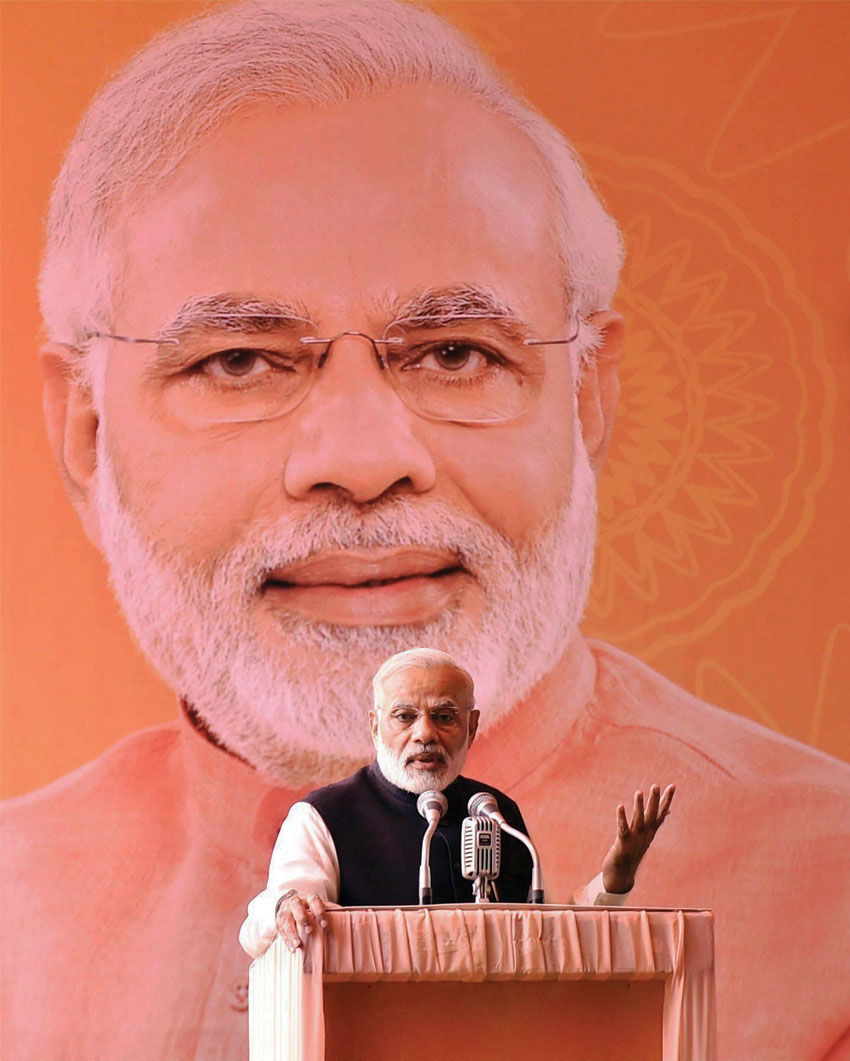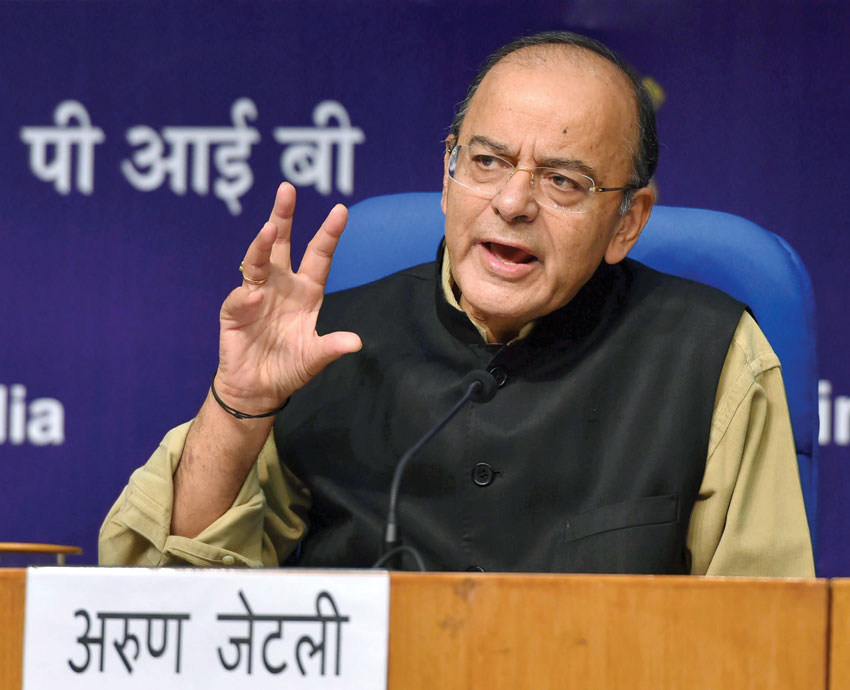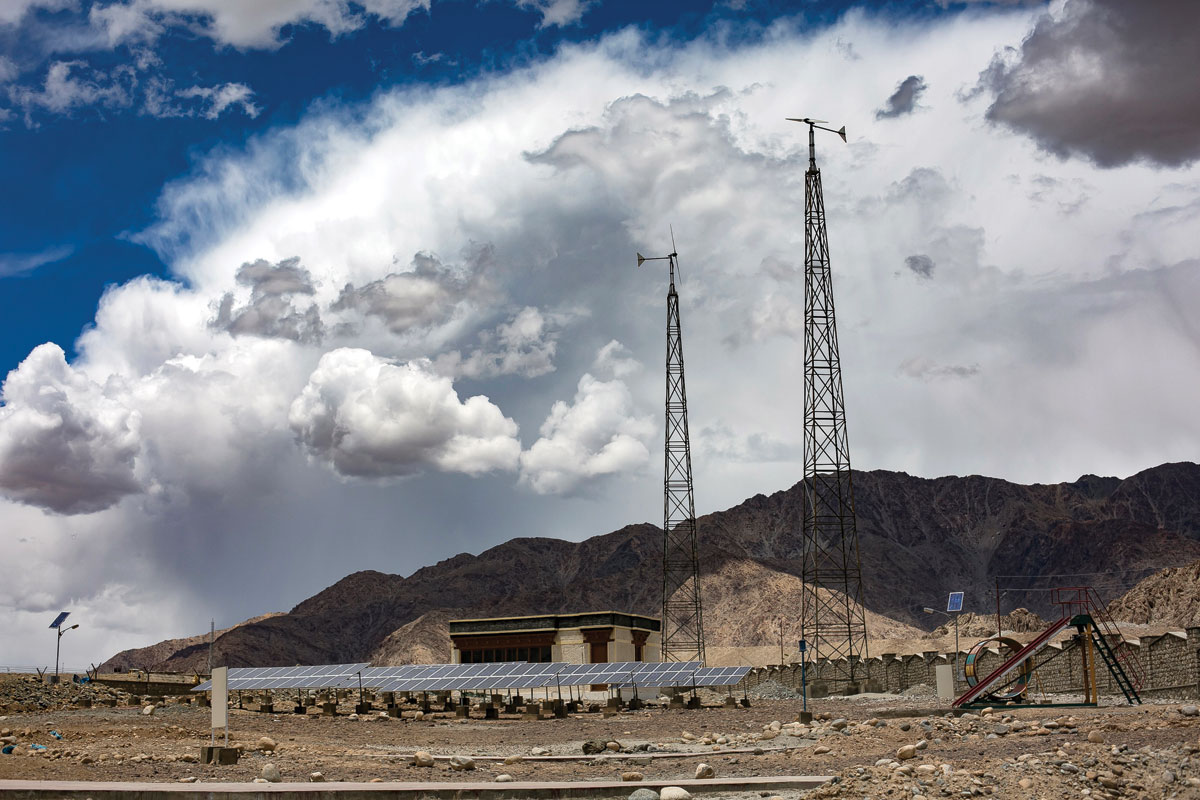Judicial, Administrative Reforms are Key to India’s Progress
A solar-wind hybrid system is seen at the site of what will be a solar energy park built by the Ladakh Renewable Energy Development Agency in Leh, June 12, in Ladakh, India. The Ladakh Renewable Energy Development Agency works on renewable energy, including solar, projects throughout Ladakh. The cold desert of Ladakh has been known as the roof of the world and reportedly a region with huge potential in tapping the solar energy with its vast patches of barren land surrounded by mountains. As President Donald Trump announced plans to withdraw from the Paris agreement on climate change, Indian Prime Minister Narendra Modi said two days later that India was “part of the world’s shared heritage” and that the country would “continue working… above and beyond the Paris accord.” At the Leh district, located at the altitude of 11,562 feet, the Ladakh Renewable Energy Development Agency is currently working on renewable energy, including solar, projects throughout Ladakh despite challenges at the mountainous terrain and sees the opportunity to earn revenue by exporting electricity to demand centers in North India while its residence simply hope to attain energy independence. Based on reports, China and India will be the biggest recipients for renewables energy with the highest power-generating capacity by 2040. India had planned to build the world’s largest solar power project in Ladakh back in 2014 but the project was later announced this year to be placed it on hold due to the huge costs on the transmission system while the country continues by focusing on smaller projects instead. (Allison Joyce/Getty Images)
India has jumped 30 places to rank 100th in the World Bank’s “ease of doing business.” No doubt, the achievement has been made possible due to series of reforms in taxation, licensing, investor protection and bankruptcy resolution that the Modi government has implemented, writes Siddharth Srivastava.
The target now is to be in the top 50 in the next two years and in three years to be among the top 20 nations. This is a tall order and to achieve the same there is one crucial reform that Prime Minister Narendra Modi will need to push through.
And that is judicial reforms. One major fear of investors, whether overseas or domestic, is to be caught in an unending litigation trap with no immediate resolution that can cause huge investments and projects to stall and even fail. Contracts are dishonored with impunity due to knowledge that judicial redressal is an option that nobody likes to exercise. Over the recent past, for instance, the regulatory mechanisms in India’s power sector have gone for a toss. In the last few months, state-owned distribution companies (discoms), the main bulk buyers of electricity in India, have been forcing renewable project developers to cut rates of old contracts that were signed when costs were higher.
Safe in the knowledge that investors are not going to file cases that will take years to resolve, discoms in Gujarat, Andhra Pradesh, Uttar Pradesh, Tamil Nadu, Karnataka and Jharkhand, among other states, have been arm-twisting developers to renegotiate power purchase agreements (PPAs) already signed, or about to be signed, seeking lower rates.

State-owned NTPC, India’s biggest generator, that has been investing in clean energy projects has also been left in a lurch. This is despite the fact that NTPC has the backing of the federal government and is endowed with considerable financial clout. The Indian Banks’ Association (IBA), meanwhile, has warned that renewable energy projects could turn into nonperforming assets (NPAs) in their balance sheets if discoms pressure developers to cut rates of old contracts.
“Such action of states could result in a larger problem as solar projects implemented in the past at higher cost are not viable at lower tariffs being discovered in recent auctions. After auction for wind power projects, some states have even started renegotiating for downward revision of tariffs,” IBA said. New Delhi has been looking to protect the interests of developers and also send a clear message to investors that the government stands for a stable regulatory environment.
Power minister R.K. Singh recently said New Delhi will soon make obligations under PPA mandatory to ensure discoms do not renege on contracts. “I have called a meeting of energy ministers of all states in November (second week); I will tell them that I am going to make obligations under PPAs statutorily binding. I am also going to provide in the law penalties if power bills are not paid promptly and the amended law will also provide that the RPOs (renewable purchase obligations) will be obligatory,” Singh said.
The executive pressure is having some impact. The Karnataka government recently overruled a regulatory order that had reduced the rate, the state discom would pay for wind energy projects for which PPAs were signed earlier. The state has invoked special provisions under the Electricity Act to veto the decision of the Karnataka Electricity Regulatory Commission (KERC). Last month, rejecting the requests of wind developers, KERC had reiterated its order of fixing lower rate.

While judicial processes in India are a nightmare, bureaucratic high handedness and red tape is another big arena that needs to be tackled. New interpretation of customs rules for instance threatens India’s solar projects, with officials recently slapping import duties on crucial inputs that were previously always shipped in without any levy. Miffed developers say loan repayment and targets could be hit. “It is simple arm-twisting,” a leading unnamed developer said.
“At least $5-7 billion worth solar modules must have been imported over all these years without any import duty. Suddenly, some spirited customs officials have decided to reinvent the wheel. It is sheer harassment with ulterior motives.”
Thankfully, the pro-business ministry of new & renewable Energy (MNRE) has taken up the matter strongly with the finance ministry. “It is a matter of wrong classification. They are sorting out the matter. I’ve talked to the board member concerned,” said Anand Kumar, secretary, MNRE.
The Modi government has done quite well to leapfrog India into the top 100 in the “ease of doing” index. However, the twin issues of judicial and administrative reforms need a major rejig if India is to be considered among the ivy league of countries that offer the best opportunities and stable regulatory frameworks to investors from across the world.


